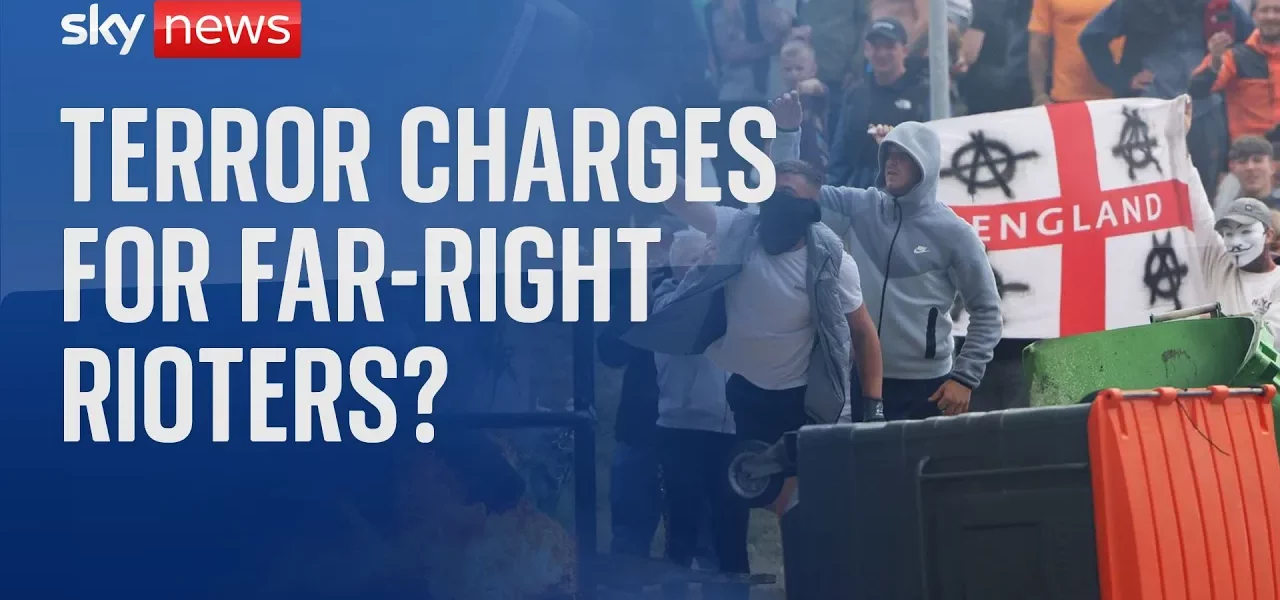Former Police Chief Calls for Counterterrorism Action Against Far-Right Violence

This article delves into the urgent discussions surrounding far-right violence in the UK, exploring calls for the application of counterterrorism laws by former police officials and the broader implications for national security and public order.
Introduction
The recent surge in far-right violence across the UK has sparked intense discussions among law enforcement officials and policymakers. A former assistant commissioner of the Metropolitan Police, Neil Bassu, has raised significant concerns about the nature of these violent acts, suggesting that many of them may qualify as terrorist offenses under existing laws. This article will explore the key points raised by Bassu, the implications for national security, and the challenges faced by law enforcement in addressing these issues effectively.
The Nature of Current Violent Incidents
Bassu highlights that the violence witnessed in recent weeks is unprecedented in its severity, marking a troubling trend in public disorder. He emphasizes that many of these incidents go beyond mere public order offenses and may indeed fall under the umbrella of terrorism.
Types of Violent Offenses
- Fire-related offenses, particularly around places of worship.
- Public disorder offenses that disrupt community safety.
- Assaults against individuals based on ideological beliefs.
These incidents illustrate a shift toward a more extreme form of violence that threatens the very fabric of UK society.
The Call for Counterterrorism Prosecution
Bassu advocates for the prosecution of far-right offenders under counterterrorism laws, arguing that the ideological intent behind these actions should be taken seriously. However, he acknowledges the challenges of proving such intent in a court of law.
Challenges of Proving Ideological Intent
- Gathering sufficient evidence to demonstrate a clear ideological motive.
- Understanding the nuances of political expression versus violent extremism.
- Navigating the legal thresholds established for terrorism prosecutions.
Despite these challenges, Bassu insists that the increasing frequency and severity of these offenses warrant a reevaluation of how they are prosecuted.
Government Response and Legislation
There is a growing concern that the UK government has been slow to respond to the rise of far-right extremism. Bassu suggests that the process for prescribing organizations as terrorist entities is highly rigorous, which may hinder timely action against emerging threats.
Historical Context of Terror Organization Prescription
Bassu points to previous efforts to dismantle violent groups, such as National Action, which was prescribed in 2016. This action allowed authorities to target and disrupt extremist activities effectively.
Future Considerations
As new groups continue to emerge, it is crucial for law enforcement to adapt and respond proactively. Key considerations include:
- Monitoring social media for threats and organizing efforts.
- Engaging with community leaders to prevent radicalization.
- Strengthening collaboration between various law enforcement agencies.
The Role of Social Media in Amplifying Violence
In the digital age, social media plays a significant role in both the organization and amplification of far-right violence. Bassu expresses frustration over how these platforms manage content that incites violence.
Social Media Companies’ Responsibilities
Social media platforms have a responsibility to regulate harmful content, and Bassu argues that they must do more to prevent the spread of extremist ideologies. This includes:
- Implementing stricter content moderation policies.
- Cooperating with law enforcement to track down perpetrators.
- Enhancing transparency in their operations regarding hate speech and violence.
The need for effective online safety legislation has never been more pressing, as the potential for violence continues to grow.
Conclusion
The commentary provided by Neil Bassu sheds light on the urgent need for a comprehensive approach to counter the rising tide of far-right violence in the UK. By applying counterterrorism laws where applicable and holding social media companies accountable, the government can take significant steps toward safeguarding communities from extremist threats. It is essential for citizens to stay informed about these developments and advocate for effective policies that promote public safety. For further reading on related topics, check out our articles on counterterrorism strategies and the impact of social media on public safety.
“`




